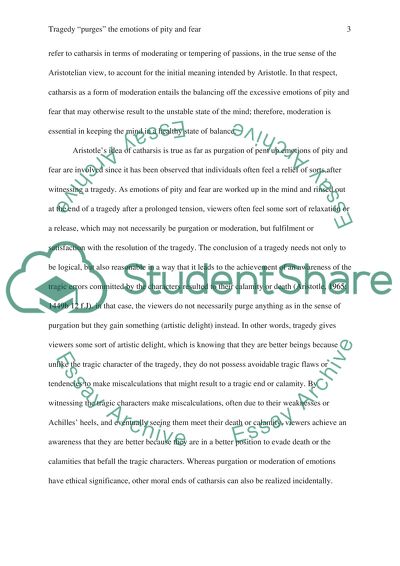Cite this document
(Tragedy Purges the Emotions of Pity and Fear Essay Example | Topics and Well Written Essays - 1250 words, n.d.)
Tragedy Purges the Emotions of Pity and Fear Essay Example | Topics and Well Written Essays - 1250 words. https://studentshare.org/philosophy/1842910-what-is-the-best-way-to-understand-aristotles-claim-that-tragedy-purges-the-emotions-of-pity-and-fear
Tragedy Purges the Emotions of Pity and Fear Essay Example | Topics and Well Written Essays - 1250 words. https://studentshare.org/philosophy/1842910-what-is-the-best-way-to-understand-aristotles-claim-that-tragedy-purges-the-emotions-of-pity-and-fear
(Tragedy Purges the Emotions of Pity and Fear Essay Example | Topics and Well Written Essays - 1250 Words)
Tragedy Purges the Emotions of Pity and Fear Essay Example | Topics and Well Written Essays - 1250 Words. https://studentshare.org/philosophy/1842910-what-is-the-best-way-to-understand-aristotles-claim-that-tragedy-purges-the-emotions-of-pity-and-fear.
Tragedy Purges the Emotions of Pity and Fear Essay Example | Topics and Well Written Essays - 1250 Words. https://studentshare.org/philosophy/1842910-what-is-the-best-way-to-understand-aristotles-claim-that-tragedy-purges-the-emotions-of-pity-and-fear.
“Tragedy Purges the Emotions of Pity and Fear Essay Example | Topics and Well Written Essays - 1250 Words”. https://studentshare.org/philosophy/1842910-what-is-the-best-way-to-understand-aristotles-claim-that-tragedy-purges-the-emotions-of-pity-and-fear.


